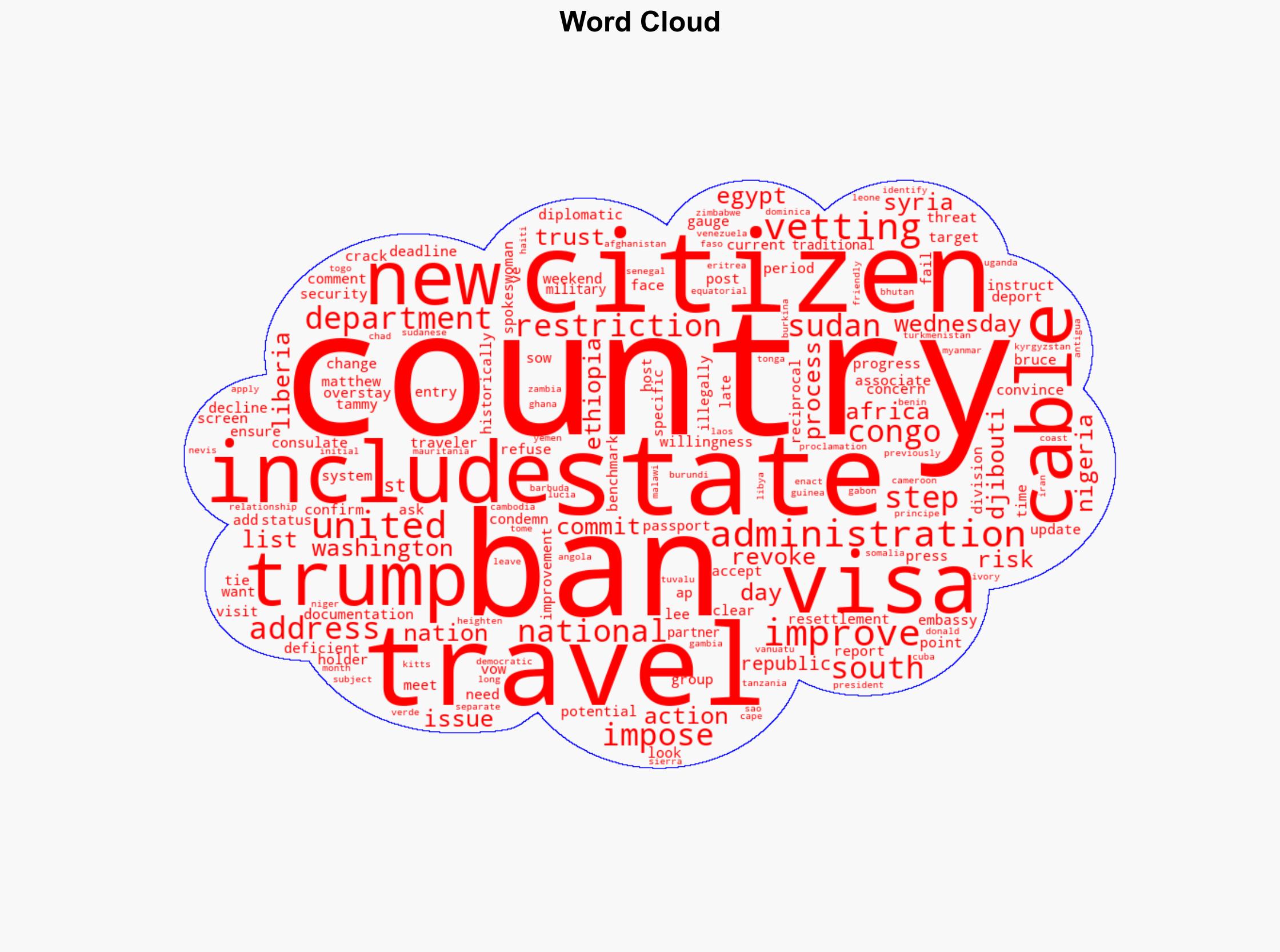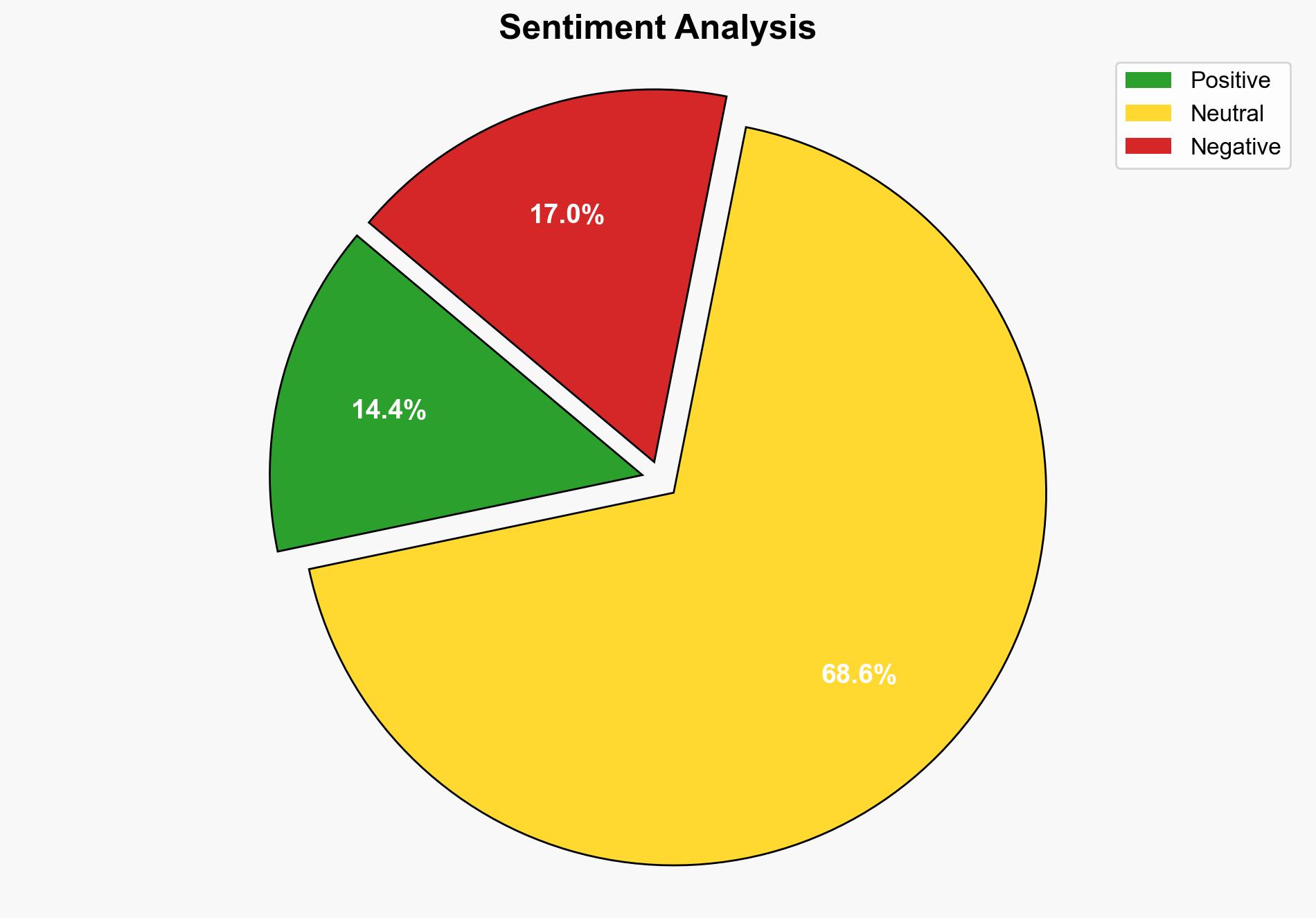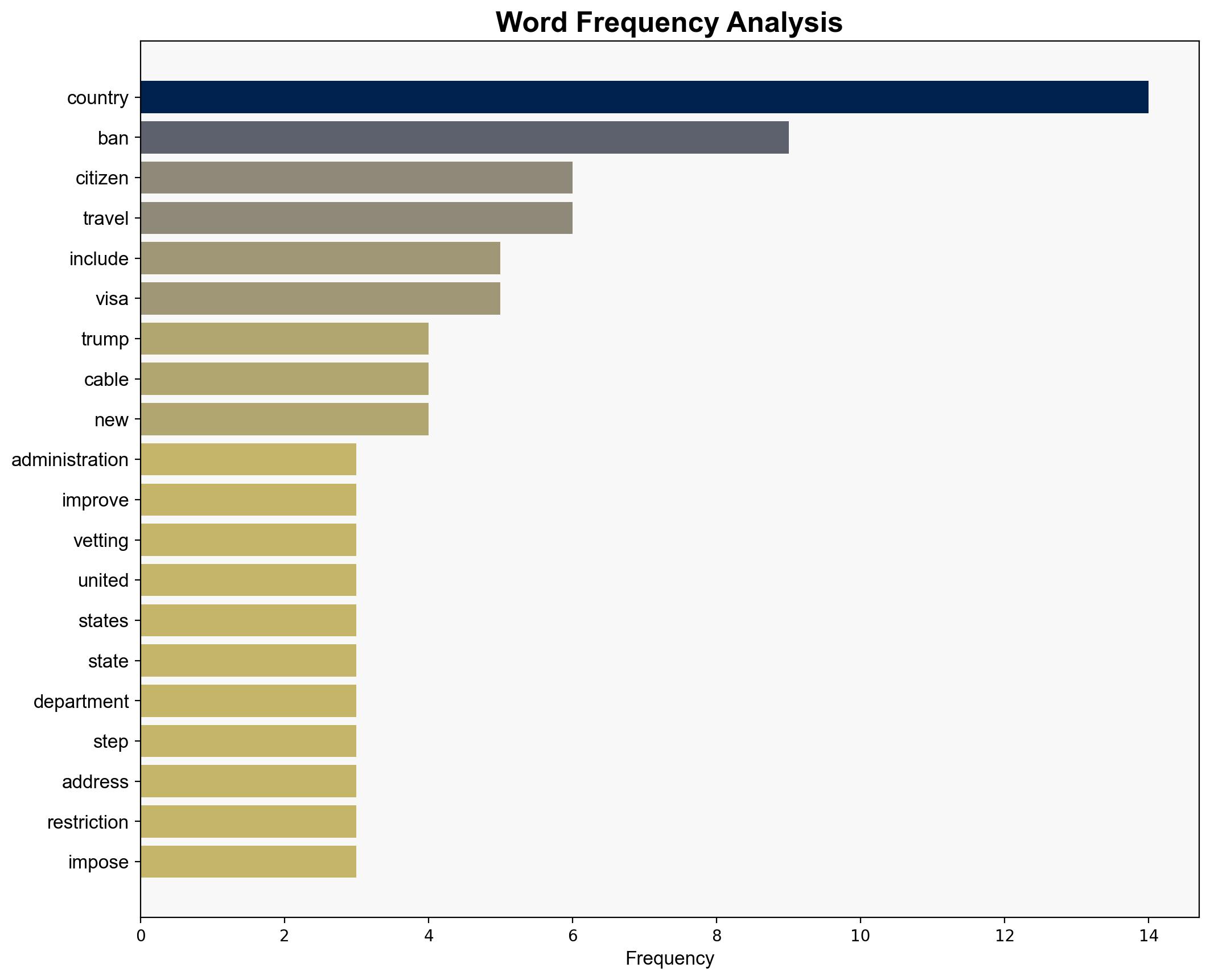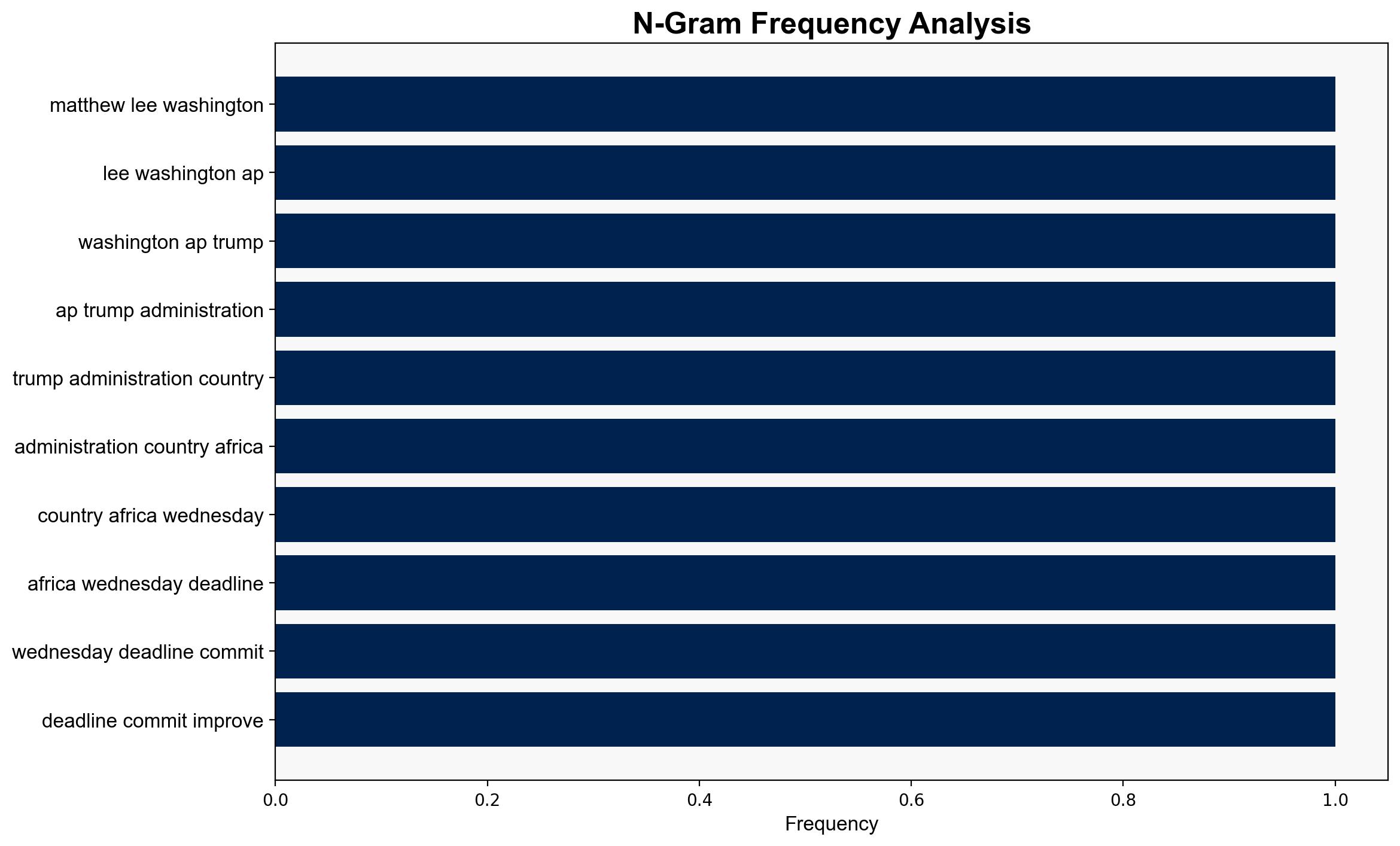Trump administration demands action from 36 countries to avoid travel ban – Boston Herald
Published on: 2025-06-17
Intelligence Report: Trump Administration Demands Action from 36 Countries to Avoid Travel Ban – Boston Herald
1. BLUF (Bottom Line Up Front)
The Trump administration has issued a directive to 36 countries, primarily in Africa, to enhance their vetting processes for travelers to avoid inclusion in a U.S. travel ban. This move aims to address national security concerns related to inadequate traveler documentation and the presence of nationals illegally residing in the United States. Countries failing to comply by the set deadline risk being added to the existing travel ban list.
2. Detailed Analysis
The following structured analytic techniques have been applied to ensure methodological consistency:
Causal Layered Analysis (CLA)
– **Surface Events**: The immediate demand for improved vetting processes by the U.S. administration.
– **Systemic Structures**: Existing travel and immigration policies, bilateral relations, and national security frameworks.
– **Worldviews**: Perceptions of U.S. immigration policies as protectionist and potentially discriminatory.
– **Myths**: The belief in the effectiveness of travel bans as a primary tool for national security.
Cross-Impact Simulation
– Potential diplomatic strains between the U.S. and affected countries.
– Economic impacts on countries reliant on remittances from nationals in the U.S.
– Regional security implications if countries retaliate with reciprocal measures.
Scenario Generation
– **Best Case**: Countries comply with U.S. demands, improving bilateral relations and enhancing global travel security.
– **Worst Case**: Non-compliance leads to expanded travel bans, escalating diplomatic tensions, and economic repercussions.
– **Most Likely**: A mixed response with some countries complying while others resist, leading to selective travel restrictions.
3. Implications and Strategic Risks
– **Political**: Potential backlash from countries perceiving the directive as an infringement on sovereignty.
– **Economic**: Disruption in trade and remittance flows, particularly affecting developing economies.
– **Security**: Increased risk of retaliatory actions and strained intelligence-sharing agreements.
4. Recommendations and Outlook
- Encourage diplomatic engagement to address concerns and foster compliance with vetting improvements.
- Monitor economic indicators in affected countries to anticipate and mitigate potential disruptions.
- Develop contingency plans for managing increased diplomatic tensions or retaliatory measures.
5. Key Individuals and Entities
– Donald Trump
– Tammy Bruce
6. Thematic Tags
national security threats, cybersecurity, counter-terrorism, regional focus





